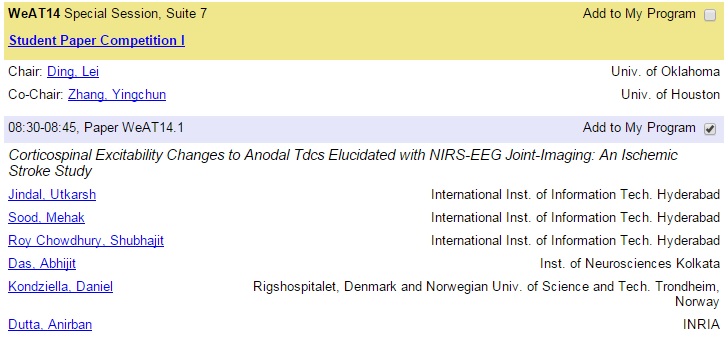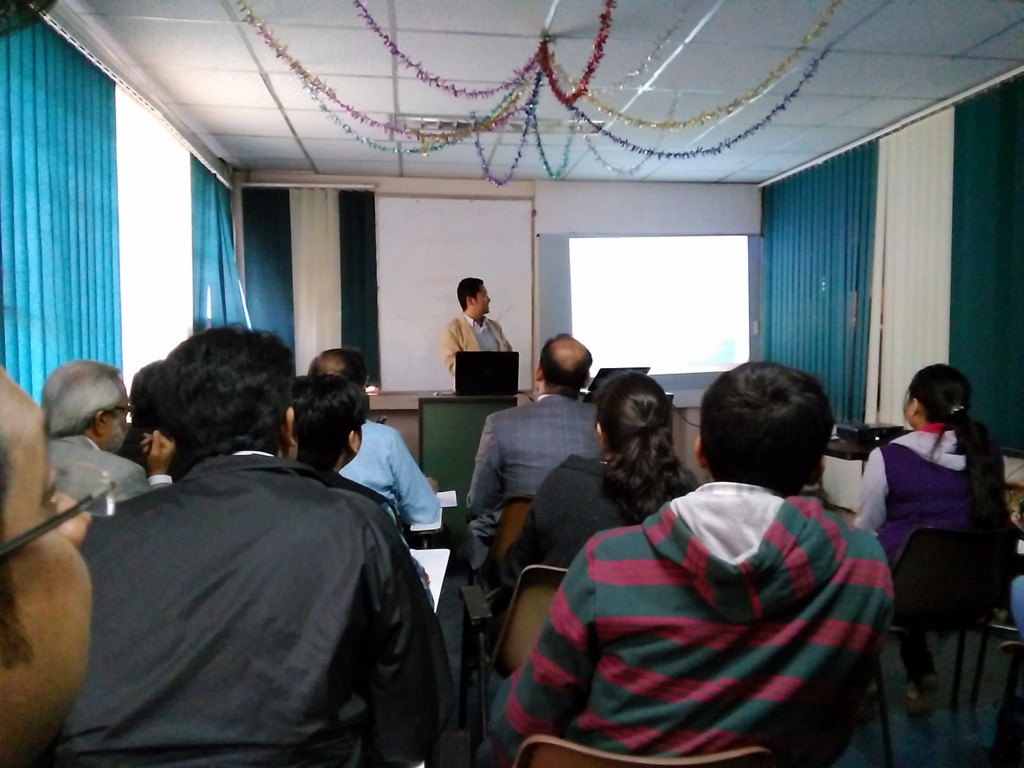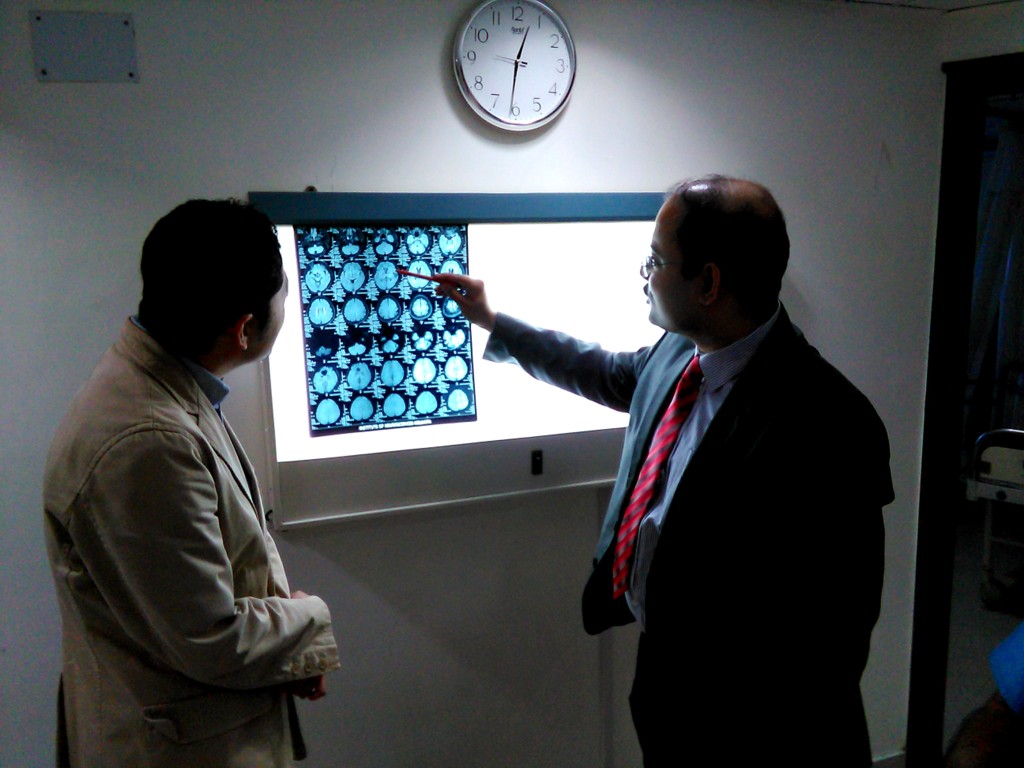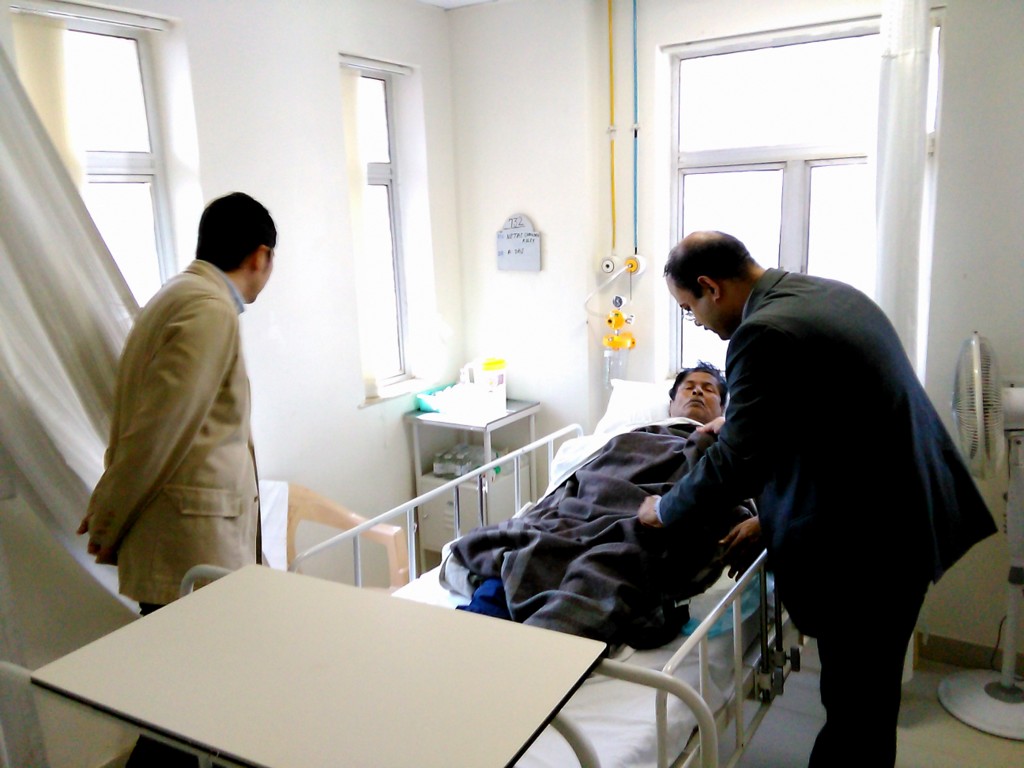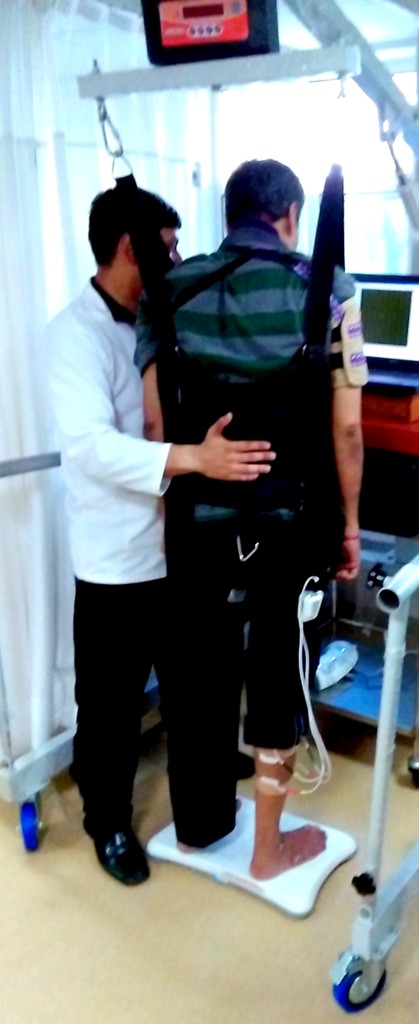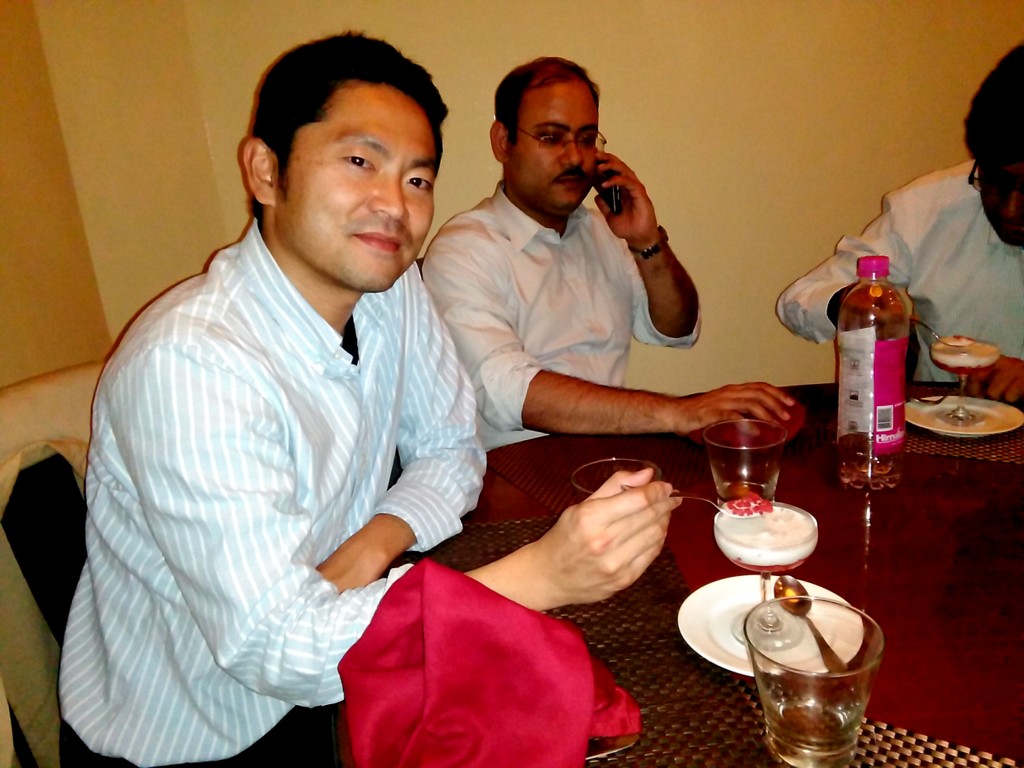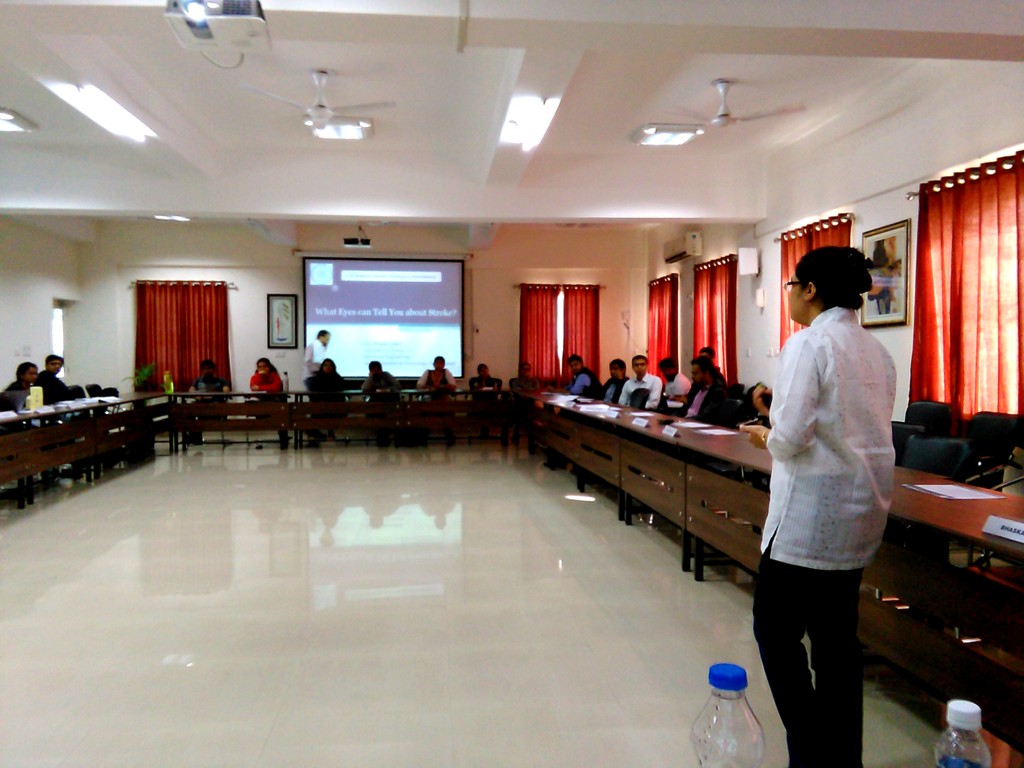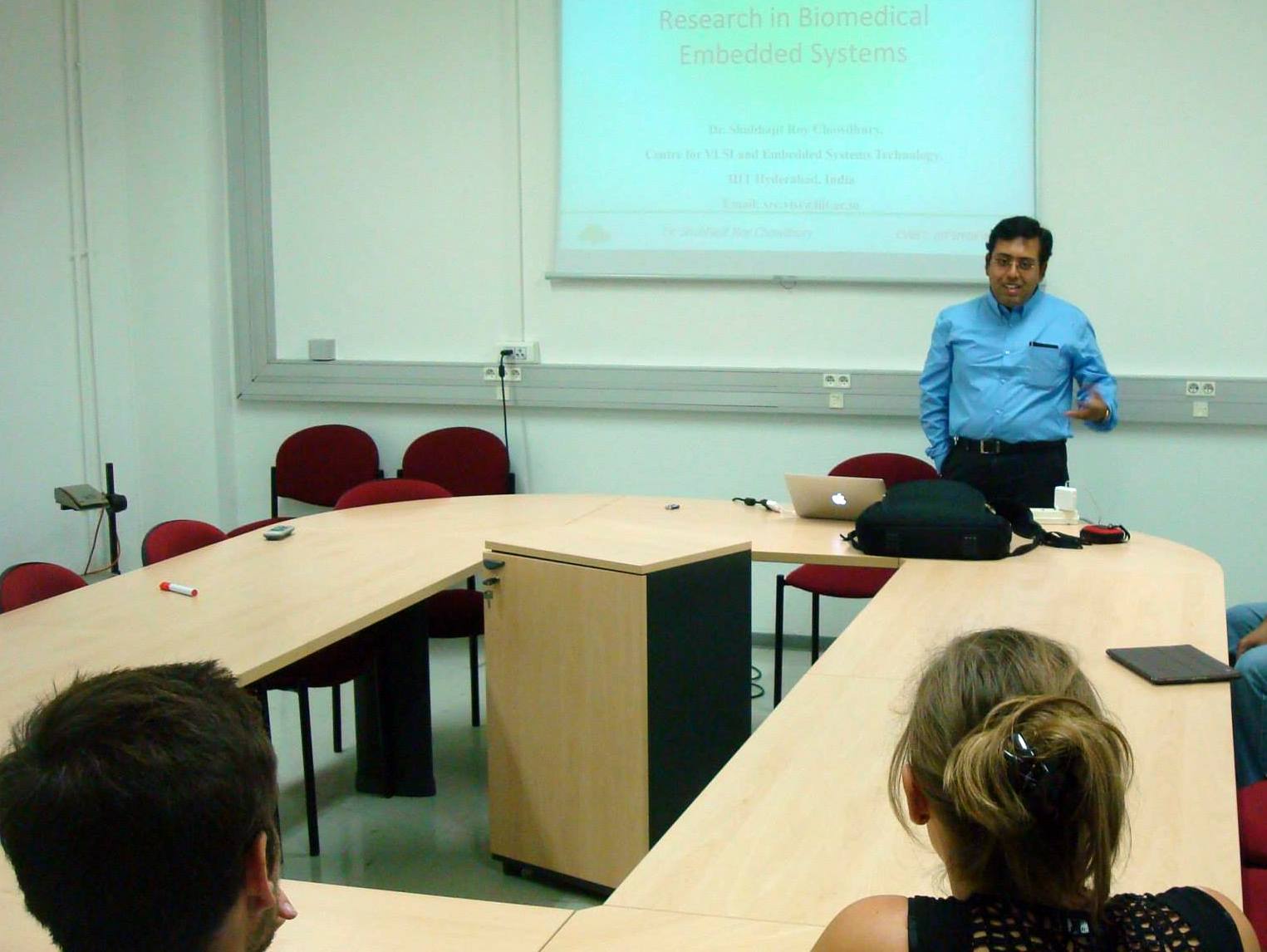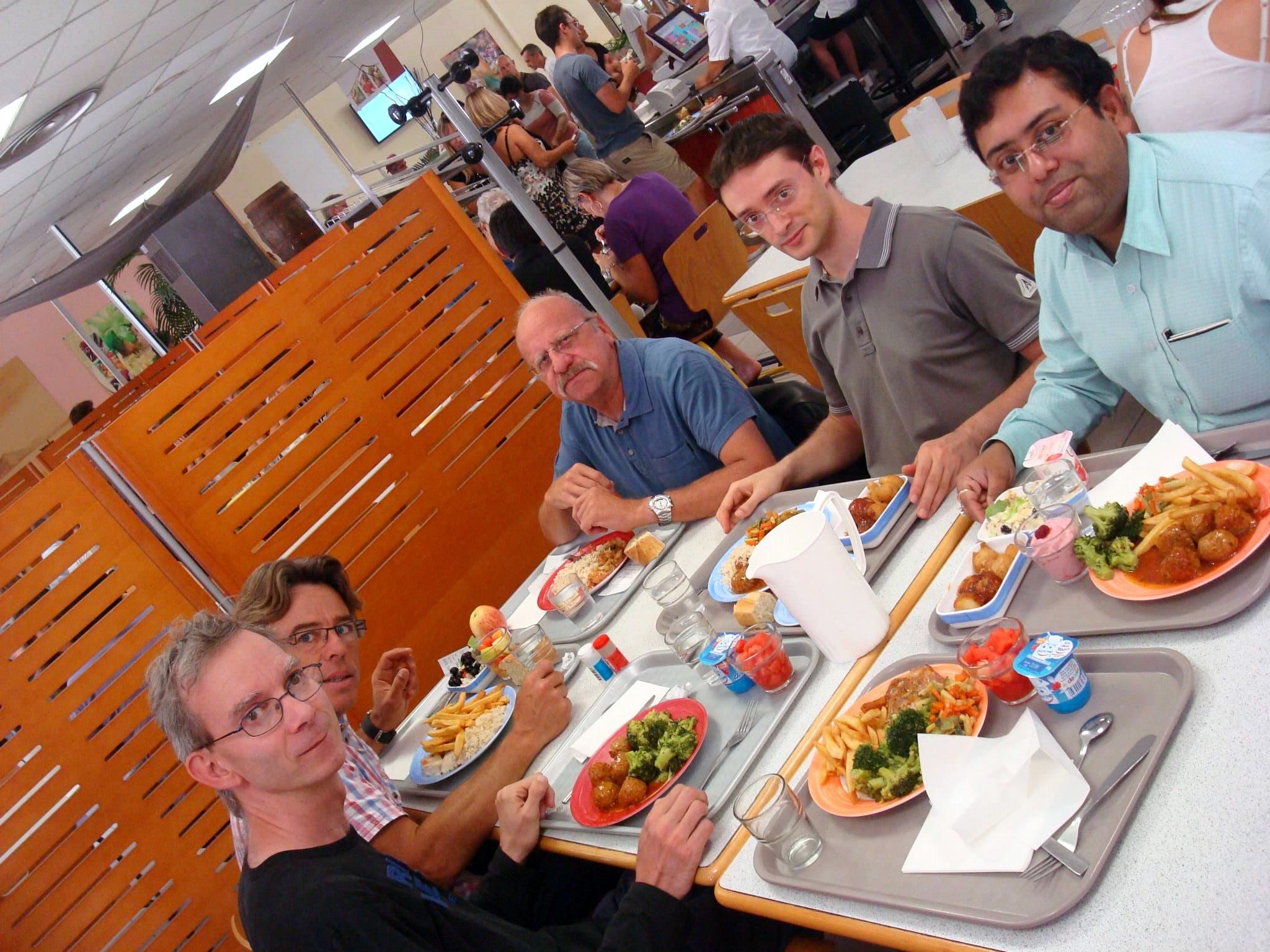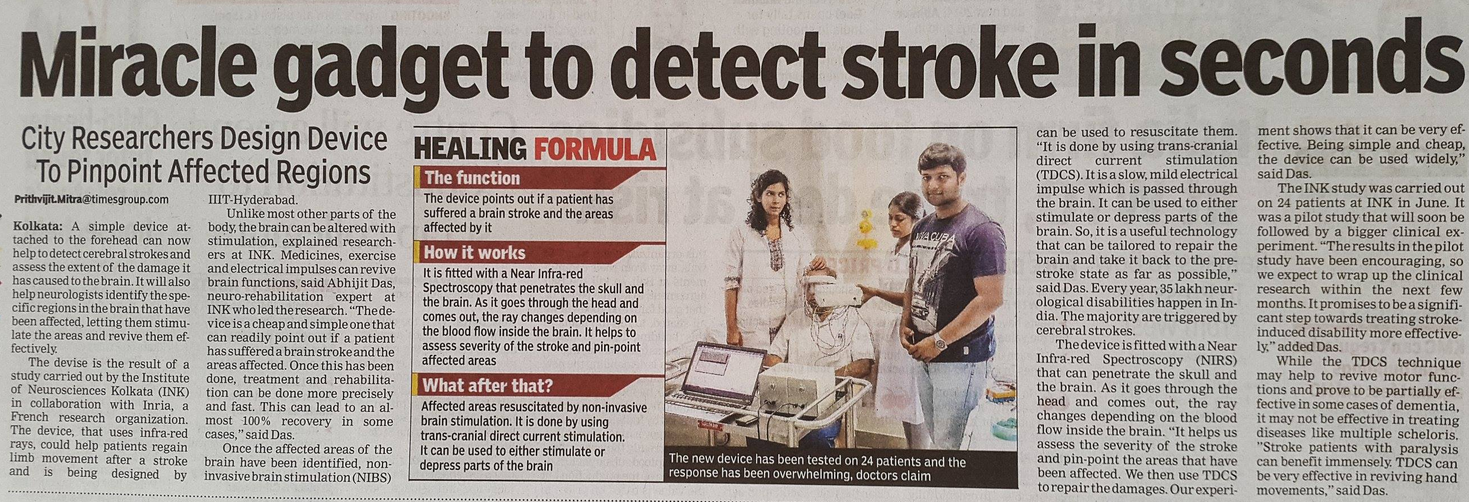« Visual problems due to brain injury are often overlooked during initial treatment, lengthening rehabilitation period. Our cost-effective system uses quantitative interpretation from images of the eye to identify gaze-related indices as biomarkers of stroke. A patient is asked to look towards a slowly moving visual stimulus on the computer screen, and an integrated web-camera looks in the patient’s eyes to capture gaze-related indices as biomarkers of stroke condition, » said IIT-Gn assistant professor Uttama Lahiri, who worked with Dr Anirban Dutta (from INRIA, France) and Dr Abhijit Das (Institute of Neurosciences, Kolkata).
Nov 17
Indian collaborators visit Montpellier
Sept. 29, 2015 – 9 to 10 AM – Room 2/124 – talk by Dr. Uttama Lahiri (INRIA-DST collaborator)
Title: Gaze-based Prognostic Tool and Virtual Reality based Rehabilitation Platform for Patients
with Neurological Disorders
Name: Dr. Uttama Lahiri
Electrical Engineering, Indian Institute of Technology Gandhinagar, India
Gaze-based Prognostic Tool for Patients with Neurological Disorders
Eye movements are a continuous and ubiquitous part of sensory perception. To properly generate highly
accurate and co-ordinate ocular movements, a vast network of brain areas are engaged, from low-level
visual processing to motor control of gaze orientation. This renders oculomotor system vulnerable to
various neurological disorders with unique clinical patterns. Therefore, oculomotor examination can serve
as an early and sensitive indicator for various neurological conditions. A simple-to-use, clinically valid
system for objectively assessing the oculomotor function can thus bring a paradigm shift in diagnosis and
treatment of brain disorders. In our research we have designed a gaze assessment tool, called SmartEye,
which is based on eye fixation, smooth pursuit, and blinking in response to both static and dynamic visual
stimuli.
Physiology-sensitive Virtual Reality based Stroke Rehabilitation platform
Stroke is a leading cause of adult death and disability, often followed by muscle weakness and loss of
control in limbs. Consequently, individuals with hemiplegia are often unable to perform simple daily
living tasks which require coordination skills. In the present study we have developed proof-of-concept
Virtual Reality (VR) based tasks where the participant is asked to navigate objects in the VR environment
by interacting with the environment with a haptic device. Our VR-based environment offers tasks of
varying challenges in an individualized manner that is adaptive to one’s task performance.
Simultaneously, we acquire the participant’s physiological measures as biomarkers of one’s stress level.
Such systems have also been developed by our research team to train participants in balance tasks since, a
vast majority of stroke patients have problems of fall, thereby adversely affecting their independent
navigation capability.
Biography
Uttama Lahiri has received her Ph.D. from Vanderbilt University, USA. Currently, she is an Assistant
Professor at IIT Gandhinagar, India. Her research interests include robot-assisted surgical technique,
Virtual Reality based affective computing, Eye Tracking and Physiology based modeling techniques, and
Adaptive Intelligent techniques in cognitive research.
Aug 17
Utkarsh Jindal: Asia-Pacific Finalist at the 2015 EMBC Student Paper Competition!
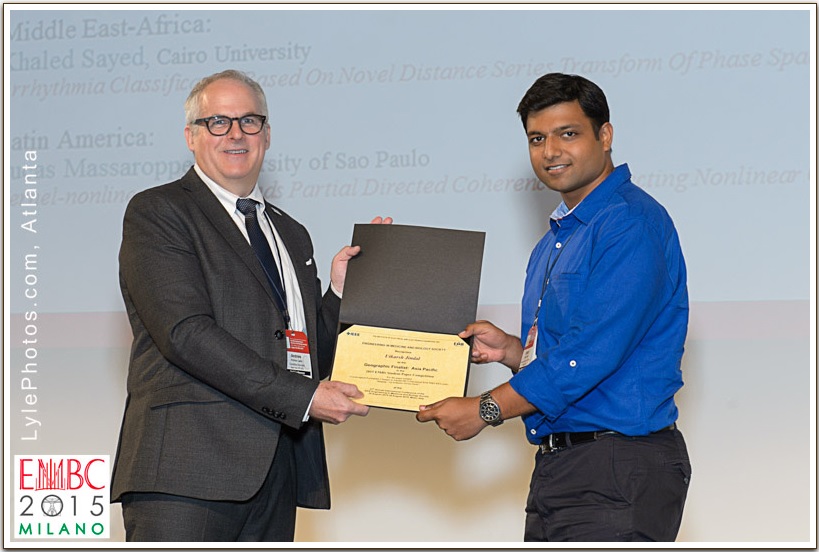 Congratulations to Mr. Utkarsh Jindal, NeuroPhys4NeuroRehab project intern, who is the Asia-Pacific Finalist at the 2015 EMBC Student Paper Competition
Congratulations to Mr. Utkarsh Jindal, NeuroPhys4NeuroRehab project intern, who is the Asia-Pacific Finalist at the 2015 EMBC Student Paper Competition
2015 EMBC Student Paper Competition Finalists
Aug 17
(English) French collaborators visit Institute of Neurosciences and Jadavpur University in Kolkata
Jan. 17, 2015: Presentation by Dr. Mitsuhiro Hayashibe at Jadavpur University Kolkata
Jan. 18, 2015: Dr. Das presents a stroke case at the Institute of Neurosciences Kolkata
Jan. 18, 2015: Stroke survivor using DEMAR’s Vivaltis FES system at the Institute of Neurosciences Kolkata
Jan. 18, 2015: Dinner with Dr. Das and Mr. Sengupta in Kolkata
Aug 17
French collaborators attend workshop on ‘Modern Techniques in Rehabilitation’ at IIT Gandhinagar, India
Jan. 22, 2015: Workshop on ‘Modern Techniques in Rehabilitation’
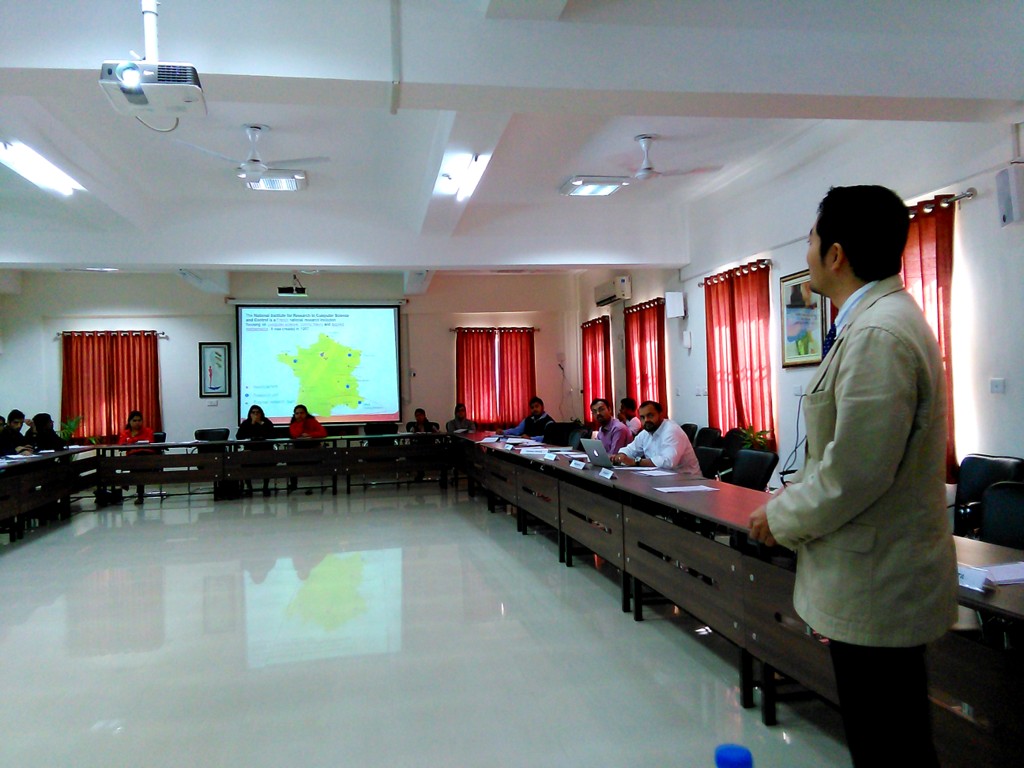
DEMAR presentation by Dr. Mitsuhiro Hayashibe, co-PI of the INRIA-DST project
Presentation and rounding up of the discussions by Dr. Uttama Lahiri, Indian PI of the INRIA-DST project
Nov 28
Visites par DEMAR collaborateurs indiens (Sept-Oct, 2014)
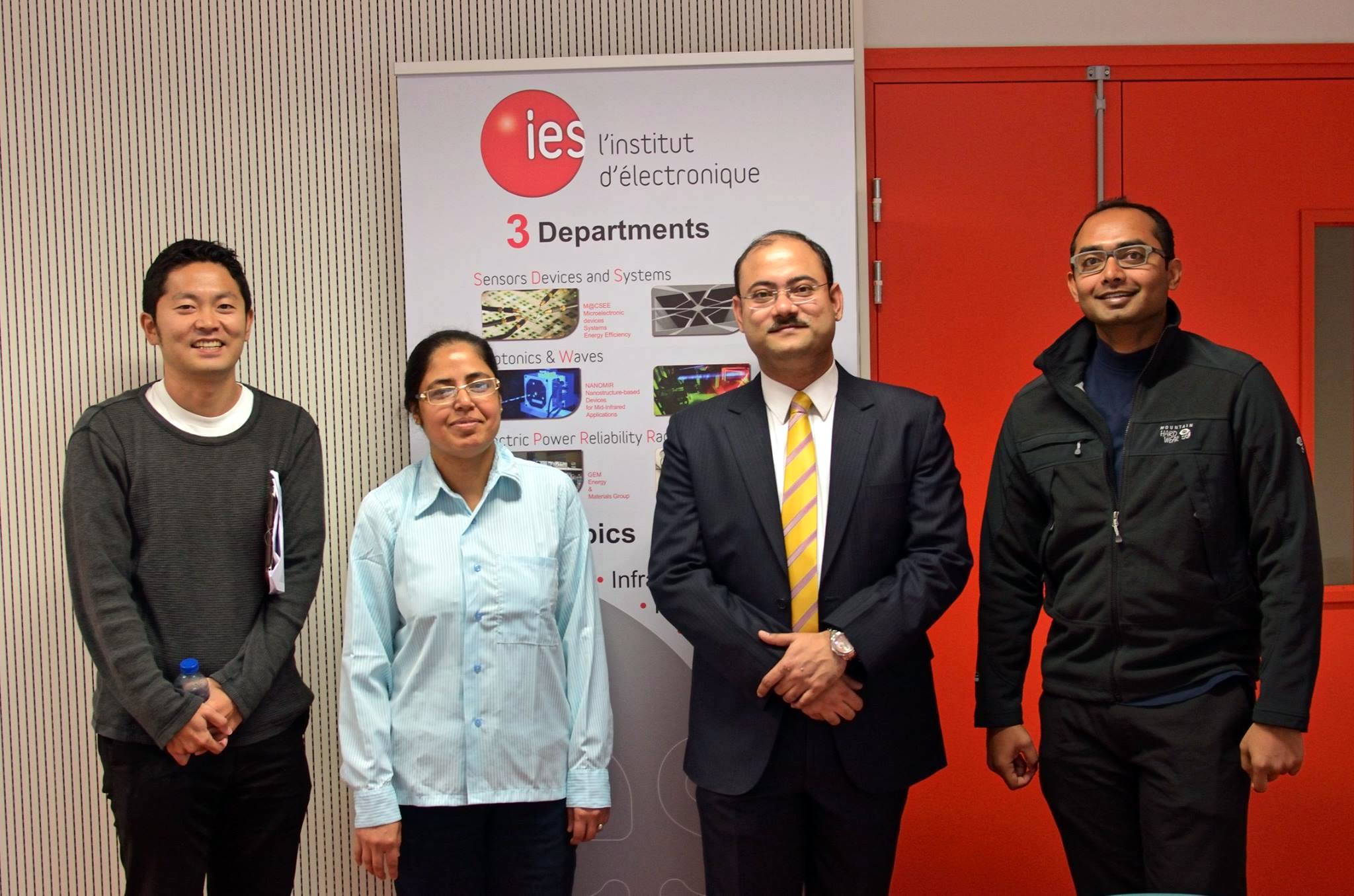
Oct. 06, 2014: DEMAR presentation by Dr. Uttama Lahiri (second from left), Assistant Professor, Electrical Engineering, Indian Institute of Technology Gandhinagar, India – Robotics and Affective Computing for Neurorehabilitation.
Oct. 06, 2014: DEMAR presentation by Dr. med. Abhijit Das (second from right), Director of Jain Misrilall Padmawati Foundation Medical Rehabilitation Centre, Director of Neurorehabilitation Program, Consultant Neurologist, Institute of Neurosciences Kolkata, India – Finding Fatigue: The search for neural substrate and treatment of an enigma with a special focus on post-stroke fatigue.


